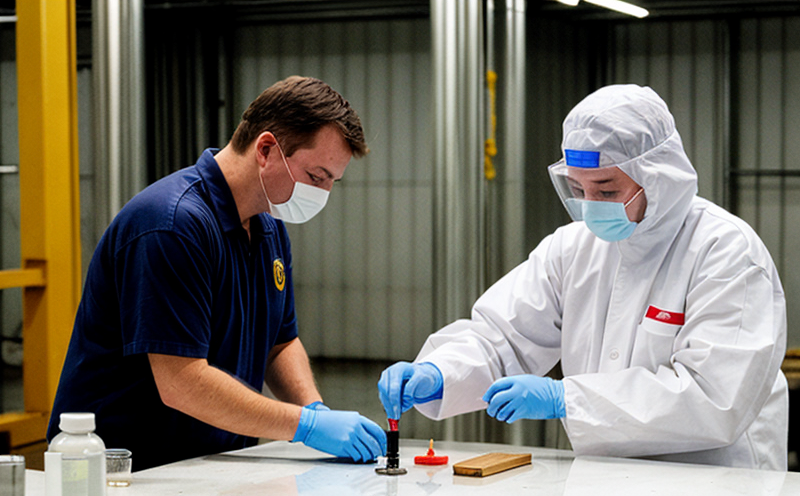ISO 22088-4 Package Stability under Thermal Stress
The ISO 22088 series of standards addresses packaging stability under various environmental conditions. Specifically, ISO 22088-4 focuses on the evaluation of package stability under thermal stress. This service is essential for ensuring that your packaging can withstand the rigors of storage and transportation, thus protecting your products from damage.
Thermal stress testing plays a crucial role in the quality assurance process by simulating real-world conditions that packages may encounter during their lifecycle. These tests are vital because they help identify potential weaknesses in the design before the product reaches the market. By adhering to international standards such as ISO 22088-4, businesses can ensure compliance with global regulations and improve overall packaging performance.
The test method outlined in ISO 22088-4 involves subjecting packages to a range of temperature cycles that mimic environmental conditions like those found in warehouses or transport vehicles. This procedure helps determine the package's resistance to changes in temperature, which can affect its structural integrity and ability to protect contents.
During testing, specimens are exposed to controlled thermal environments designed to replicate actual storage and shipping scenarios. The goal is to identify any defects that could lead to product contamination or damage during transit. Compliance with this standard ensures that packages meet strict safety requirements set forth by international bodies like the Food Safety Authority (FSA).
Implementing ISO 22088-4 helps manufacturers maintain high standards of quality control throughout their supply chain processes. It allows them to anticipate and address issues early on, thereby reducing costs associated with recalls or rejections at later stages.
For those responsible for ensuring food safety, implementing this standard provides an additional layer of assurance that products will remain safe until they reach consumers' hands.
Benefits
Implementing ISO 22088-4 brings numerous advantages, both in terms of operational efficiency and customer satisfaction. Firstly, it enhances the reliability of your supply chain by ensuring that packages can handle extreme temperatures without failing. Secondly, adherence to this standard improves product quality, which directly contributes to brand reputation.
Moreover, compliance with ISO 22088-4 fosters better communication within teams working on different aspects of packaging design and manufacturing. It also facilitates smoother collaboration between suppliers and customers by establishing clear expectations regarding package performance.
Achieving certification through this standard can significantly boost your company's standing among competitors. Consumers today are increasingly aware of the importance of sustainable practices, so demonstrating commitment to environmental responsibility via proper packaging methods is highly valued.
Quality and Reliability Assurance
- Thermal stress testing ensures that packages maintain their structural integrity under varying temperature conditions.
- This process helps prevent contamination of products during transit, ensuring they reach customers safely and intact.
In addition to these benefits, ISO 22088-4 guarantees consistent performance across batches of the same product. This consistency is crucial for maintaining brand identity and customer expectations.
By investing in quality assurance measures like those prescribed by ISO 22088-4, companies can minimize waste caused by damaged goods reaching end users. This not only reduces costs but also contributes positively to environmental sustainability efforts.
Competitive Advantage and Market Impact
- Meeting the requirements of this standard enhances your company's reputation in the eyes of customers, investors, and regulatory bodies alike.
- It demonstrates a proactive approach towards maintaining high standards of hygiene and safety throughout product distribution channels.
The ability to demonstrate compliance with such internationally recognized standards can give businesses a significant edge over competitors who may not adhere as closely to best practices in packaging design and manufacturing.
In today's competitive market, where consumer trust is paramount, having an ISO 22088-4 certification signals that your company takes product safety seriously. This credibility can translate into increased sales and customer loyalty, ultimately contributing positively to long-term growth prospects.





